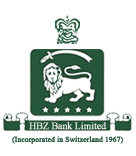
| HBZ Bank Limited (A Subsidiary of Habib Bank AG Zurich) |
South Africa |
|
|
|||||
 |
|
|
|||
|
|
|||||
|
What is the Corporation for Deposit Insurance? The Corporation for Deposit Insurance (CODI) is South Africa’s Deposit Insurance Scheme (DIS), created, or mandated by law, to protect qualifying bank depositors in the event of their bank failing. CODI is a subsidiary of the South African Reserve Bank (SARB). Why do we need deposit insurance? While South Africa has a resilient financial sector, deposit insurance brings further confidence and stability to the sector. In the past, when a bank failed the government used taxpayers’ money to compensate depositors on a case-by-case basis. With deposit insurance, qualifying depositors will be given reasonable access to their covered deposits should their bank fail. More than 100 countries in the world have a DIS similar to the one South Africa has adopted. Do I need to pay CODI to be covered? No. Depositors will not make any payments to CODI for deposit insurance protection. CODI will establish and build a Deposit Insurance Fund (DIF) with financial contributions from member banks. What is the maximum limit of cover? Qualifying depositors are covered up to a maximum amount of R100 000 per depositor per bank.The R100 000 coverage limit includes both the principal amount of a deposit and interest. A total of 97% of the country’s depositors will qualify for depositor protection. Can I purchase additional protection if my deposit amount at a single bank is more than R100 000? No. Qualifying depositors cannot buy extra deposit insurance cover when they have deposit balances of more than R100 000. In the case of a failed bank being liquidated, any balance above R100 000 will remain in the estate of the failed bank. The qualifying depositor can then claim that balance from the estate of the failed bank, which will be handled by the liquidator. Which banking products are covered by CODI? CODI protects banking products where the nominal balance is guaranteed and repayable at par. This means that CODI protects banking products where the depositor is entitled to the full account balance as at a specific date. Qualifying products typically include, but are not limited to, the following account types: Current accounts, Transactional accounts, Savings accounts & Islamic Qard accounts. Which types of deposits are not protected by CODI? CODI will not cover:
Do I have to register to be covered by CODI? No. CODI’s protection is automatic, so depositors do not have to apply. By law, banks will provide depositors’ information to CODI. Typically, the depositors who qualify for deposit insurance protection include:
Which banks are members of CODI?
By law, all banks registered in South Africa are members of CODI. These include all commercial banks, local branches of foreign banks, mutual banks and co-operative banks. How does CODI fit into South Africa’s financial sector safety net, or what exactly comprises this safety net?
South Africa has one of the world’s most resilient financial sectors, overseen by a network of institutions aimed at safeguarding its stability and public confidence,
collectively known as the financial sector safety net. This network includes the Prudential Authority (PA) that regulates financial institutions and market infrastructures.
Secondly, the SARB acts as the lender of last resort, offering loans or liquidity to banks that are experiencing financial difficulty. The Resolution Authority (RA) is
responsible for the orderly resolution of designated institutions.
Please feel free to download
HBZ Bank Limited |
| Copyright © 2024 HBZ Bank Limited, all rights reserved. | Disclaimer | Access to Information Act | Data Privacy Notice | Cookies Notice |
| HBZ Bank Limited is a licensed financial services provider in terms of the Financial Advisory and Intermediary Services Act and a registered credit provider in terms of the National Credit Act, registration number NCRCP8. | |